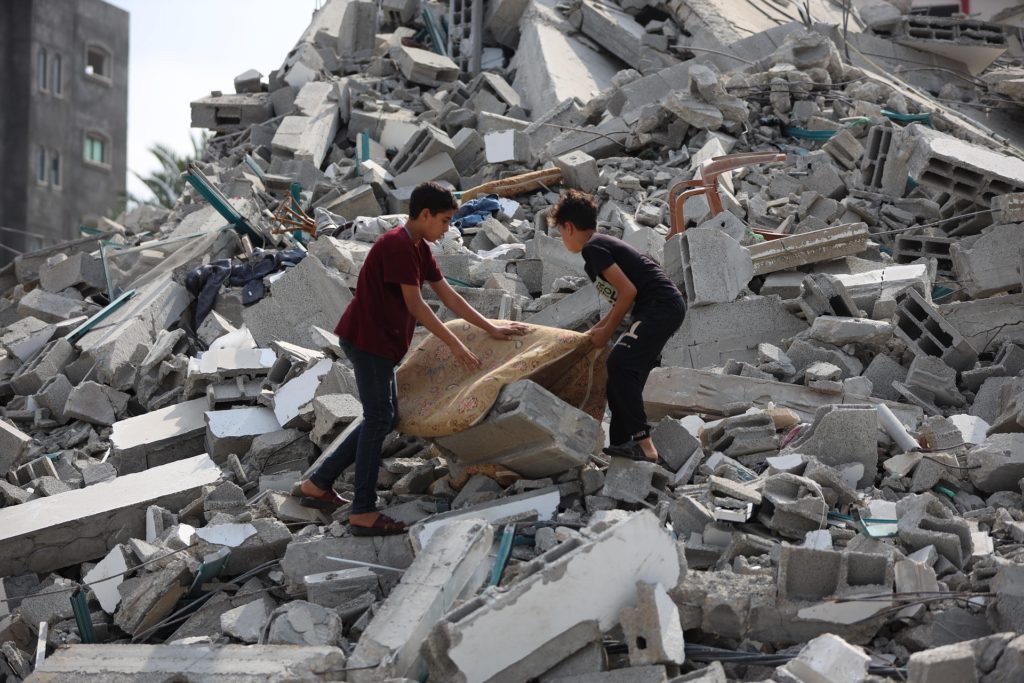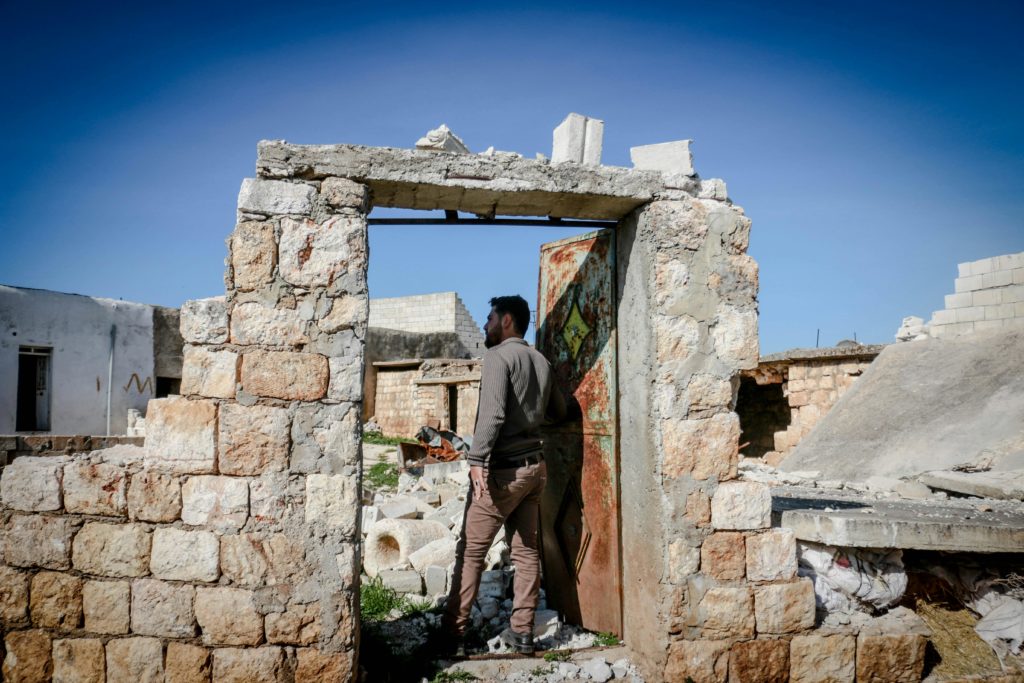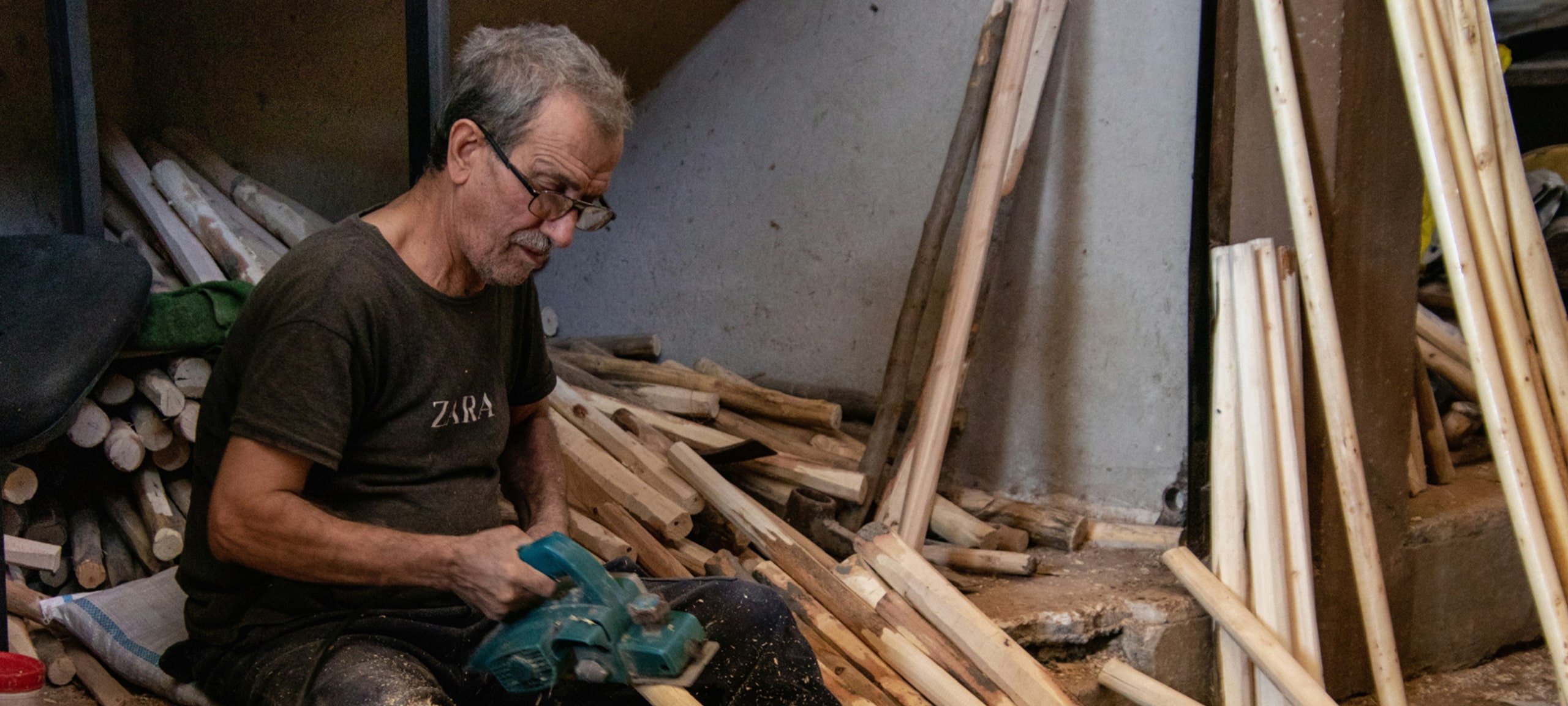Civil society inclusion in post-conflict reconstruction and political transition in MENA
Despite the importance of reconstruction in post-conflict settings, the topic has typically been overlooked in many peacebuilding processes. Less than a third of peace agreements since 1990 have included provisions on socio-economic development. Fewer still (10%) have addressed issues pertaining to reconstruction and infrastructure (University of Edinburgh’s Peace Agreements Database). This gap may yet become even more pronounced given the decrease in comprehensive peace agreements, and with the increase in limited ceasefire or cessation of hostilities agreements. In an attempt to address this gap, this blog post explores why reconstruction must be approached inclusively. It draws insights from a recent Inclusive Peace webinar featuring three researchers and practitioners with expertise on reconstruction in the MENA region:
• Dr. Deen Sharp, Visiting Fellow in Human Geography & Environment at the London School of Economics and senior consultant and academic advisor for the Aga Khan Prize for Architecture;
• Dr Nourah Shuaibi, PhD, Assistant Professor of Political Science at Kuwait University;
• Zozan Alloush, independent political and development consultant and mediator.
The topic of post-conflict reconstruction is more relevant than ever in the MENA region, including in Syria, the Occupied Palestinian Territories, and Yemen, where several countries are currently undergoing significant political transitions or are engaged in peacemaking processes, which have provided an opening for reconstruction efforts. Similar to other conflict-affected contexts, the issue of reconstruction will be a significant determinant of how post-conflict societies are rebuilt in the region. Inclusive reconstruction processes will enable inclusive societies and, in turn, sustainable peace.
Similar to other conflict-affected contexts, the issue of reconstruction will be a significant determinant of how post-conflict societies are rebuilt in the region. Inclusive reconstruction processes will enable inclusive societies and, in turn, sustainable peace.
The reconstruction of public spaces and socio-economic infrastructure in post-conflict settings is not merely a technical process – it carries significant political and structural implications. Reconstruction efforts can in turn be instrumentalised to exclude certain groups from peace-making and political transition processes, or to ensure the actors and interests which were previously invested in violence, also guarantee and protect their influence and interests in any post-conflict settlement. The engagement of regional and international actors in such contexts, with their associated influence and motives, engenders further complexity.

Gaza, Occupied Palestinian Territories | Hosny Salah ©
Additionally, reconstruction provisions establish the new parameters of public life (e.g. accessibility to critical infrastructure, spaces for community gathering, etc.) in the post-conflict environment and can therefore serve to entrench existing structural inequalities in the new post-conflict environment. Examples of such dynamics are already visible across a number of protracted conflict settings. The potential for the enactment of further violence through the reconstruction or “post-conflict” phase is perhaps most apparent in Gaza. Continued Israeli restrictions on Palestinians’ mobility and the blockade of goods entering Gaza are actively preventing its inhabitants from clearing the rubble left in the wake of Israeli missile strikes and rebuilding, thereby further entrenching a vast and long-standing power imbalance. As such, pathways to inclusive reconstruction need to be situated in the broader context of peace-making and political transition processes.
Citing the example of the Assad regime’s weaponisation of the reconstruction process in Syria from the beginning of the civil conflict in 2011, Dr. Sharp described how laws around property rights were changed to create exclusive zones, thereby feeding certain social elites and excluding and restricting any group viewed as opposing these elites.
As a means of fostering conversation on this pertinent and underexplored topic and its link to peacebuilding in complex geopolitical contexts, Inclusive Peace recently hosted an online webinar to discuss civil society inclusion in post-conflict reconstruction. Dr. Sharp began the conversation by sharing his reflections, which, linking to the example of Gaza, centred the idea of reconstruction as violence and as facet of conflict itself, which he further elucidates in a forthcoming book (Reconstruction as Violence in Syria, 2025, AUC press). Citing the example of the Assad regime’s weaponisation of the reconstruction process in Syria from the beginning of the civil conflict in 2011, Dr. Sharp described how laws around property rights were changed to create exclusive zones, thereby feeding certain social elites and excluding and restricting any group viewed as opposing these elites. As such, reconstruction policies were utilised to serve a particular political agenda and further entrench existing inequalities.
On a global scale, as issues of conflict and urbanisation and their intersection are becoming increasingly complex, the misappropriation of reconstruction policies to feed specific political agendas is increasingly likely. Dr. Sharp emphasised that the key to the success and sustainability of any reconstruction process is to ensure that this is not exclusively conceived or implemented in a top-down manner, but rather centres the needs and desires of the inhabitants themselves who will be subject to this reconstruction. As suggested by Dr. Sharp, whilst bottom-up inclusive reconstruction is vital in post-war and peacebuilding contexts, the multilateral environment remains valid and valuable for the development of clear global principles to be laid out to guide locally led reconstruction processes. Particularly in cases where the state has been decimated by conflict, it becomes necessary to have some sources of support that are institutional and structural.
Moreover, state-building since the 1990s has included specific ideas about what a ‘new’ state should like, which has typically prioritised the establishment of some form of free-market economy and liberal economy.
Offering a differing but complementary perspective, Dr. Shuaibi argued that, in the context of increasingly complex conflict realities, for example in the MENA region, the age of multilateral frameworks established by international agencies is ending. Such frameworks, as highlighted by Dr. Shuaibi, have usually been based on a traditional state-building model and a top-down and elite-driven approach, under the supervision of international actors. Moreover, state-building since the 1990s has included specific ideas about what a ‘new’ state should like, which has typically prioritised the establishment of some form of free-market economy and liberal economy. Afghanistan and Iraq are cases in point. In today’s climate, Dr. Shuaibi suggested that a policy of what she termed “reparative justice” in processes of state-building and reconstruction, which is predicated on a grassroots and survivor-led approach including reconciliation through education and restitution, is more appropriate. Echoing Dr. Sharp’s point about the need to centre the needs and desires of inhabitants where reconstruction will take place, Dr. Shuaibi advocated for the localisation of state-building and reconstruction processes, with international actors acting only as a support system.

Idlib, Syria | Ahmed Akacha ©
Ms. Alloush, who joined the webinar from Syria, shared her impressions of the sheer scale of infrastructure destruction in the country, which far surpasses anything that could be captured in a report or statistics. She stressed that decentralised thinking and planning for reconstruction is crucial in the Syrian case, most significantly since the current authorities control only 50 percent of the country’s territory and communities in different parts of the country have different needs as they recover from years of conflict. However, the approach to this process thus far seems to have been focused on attracting foreign investment and therefore on the “strategic reconstruction” of areas most relevant for external actors looking to invest in the reconstruction process, such as airports, oil extraction sites, and ports. As such, it seems that the reconstruction process in Syria remains top-down and dominated by the new authorities, at the expense of Syrians facing the rebuilding of their lives as well as their country.
The fruitful discussion between these three speakers suggests that bridging the gap between research and practice when it comes to the issue of inclusive reconstruction in the context of peacebuilding and peace-making, whilst incredibly challenging, must involve bringing together stakeholders invested and engaged in this area in different ways, from academics to practitioners. The online webinar, whilst facilitating an interesting and engaging exchange, should therefore be seen as only the beginning of a much wider conversation.
Maura McGoldrick | Peace Process Support Analyst, Inclusive Peace
Stay up to speed with peacebuilding: get our latest toolkits, comparative research, and events straight to your inbox. Sign up to our quarterly newsletter.

